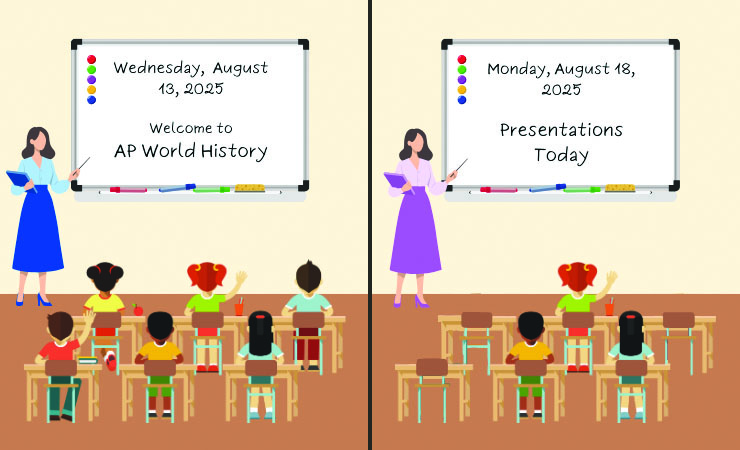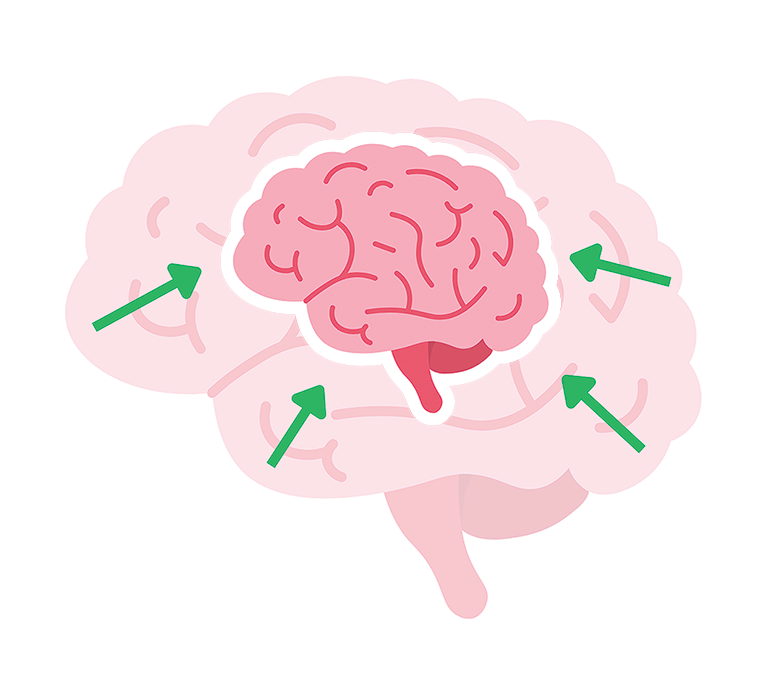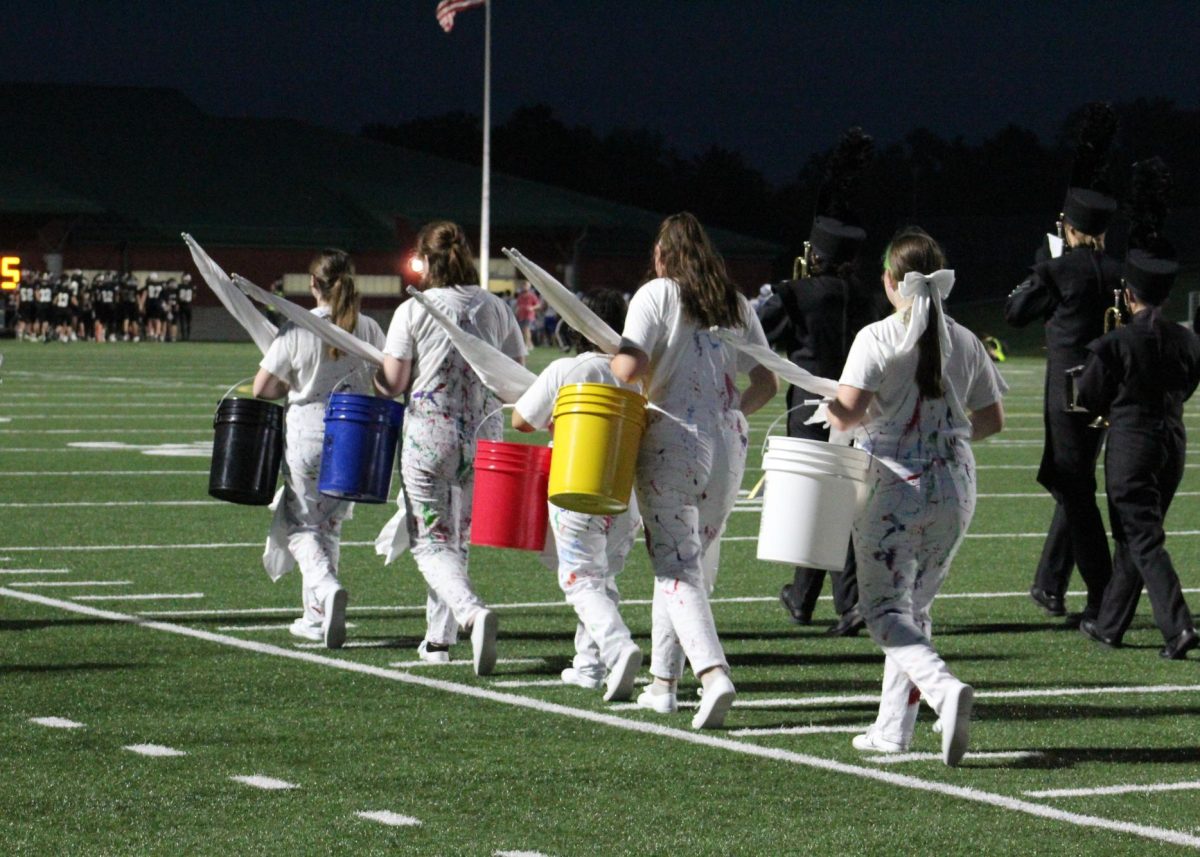What’s in a name?
{“source_sid”:”3ED283C4-983F-4CA5-B89A-BE39AB77BBE6_1587669451643″,”subsource”:”done_button”,”uid”:”3ED283C4-983F-4CA5-B89A-BE39AB77BBE6_1587667619598″,”source”:”other”,”origin”:”gallery”}
May 13, 2020
In season four of the acclaimed TV show, “Friends,” while Phoebe Buffay (Lisa Kudrow), is acting as a surrogate by carrying her brother’s triplets, she learns just how challenging and difficult choosing a name for a baby is after getting the honor of naming one of the children. Names hold so much importance in our everyday lives as they represent every person and who they are. While names are subconsciously affecting our lives and influencing our everyday choices, a question can be posed. What’s in a name?
“We are obsessed with names. We label everything. Why? Partly due to curiosity, but primarily out of a need to know how everything fits into our world,” Dr. Nicola Watts, a freelance strategist and research consultant, based in the United Kingdom, said in an article titled, “5 Reason Why Names Matter.”
With everything having a name, it makes it easier for humans to get the satisfaction of knowing where each individual and item, comparative to a puzzle piece, fits into the giant puzzle we call society.
“The truth is that names are a part of every culture and that they are of enormous importance both to the people who receive names and to the societies that give them,” H. Edward Deluzain, author of the article titled, “Names and Personal Identity” on a website titled, Behind the Name, said.
Since names are so significant in today’s society, in order to fully understand how names came to such an influential role, the history of names has to be explored.
Deluzain stated that while anthropologists were looking back at history, they once thought that names were not utilized since the population of people were so primitive. Recent studies suggest that this theory is wrong and that even in the most primitive stages, humans still labeled items and people with unique names.
From the beginning, names have been a crucial part in society, because the person who receives a name also receives an identity, and place within society.
“The name differentiates the [individual] from others; Thus, the society will be able to treat and deal with the [individual] as someone with needs and feelings different from those of other people,” Watts said.
Not only are names able to create an identity, they also have the power to fracture the personal identity of the person through mispronunciation.
Deluzain has described late Austrian neurologist Sigmund Freud’s connection between mispronunciation of names and fractured identities.
“[Freud] noticed that aristocrats seemed to mispronounce their doctors’ names more often than other people did. He interpreted this as one way the aristocracy had of keeping physicians in their place,” Deluzain said. “Doctors might have power over the life and death of their patients, but they couldn’t compete with the aristocrats in political influence and social prestige.”
Distortion of a person’s identity can also be seen within the penal system with the prisoner’s name being exchanged for a number, causing the prisoner to lose their sense of personal identity.
Some people have felt that society hasn’t recognized or provided the needs for individuals, so they respond by abandoning their name and identity given to them at birth. A prime example of this can be seen within the black Muslim population.
“These people believed that the social and political system in the United States had failed them and that racist attitudes and practices of American culture had victimized and oppressed them. They responded by adopting a new culture that they thought would better meet their needs and in the process, they changed their ‘white’ names to black Muslim names,” Deluzain said.
Racial ties to names have not only affected the personal feelings of those influenced, but have impacted job offerings as well.
“Researchers at the National Bureau of Economic Research sent out nearly 5,000 resumes in response to job ads in Boston and Chicago. Some [applicants] were given a ‘white-sounding’ first name; Others were given a ‘black-sounding’ name,” Watts said. “[Applicants] with a white-sounding name prompted 50 percent more callbacks from potential employers.”
Prejudice against names is more prevalent in our society than what most would think and has been found to be almost ingrained into us since we were kids.
“Every time we hear a name, we make a number of assumptions about that person, company or brand,” Watts said.
Researchers from the U.S., Australia and Belgium have seen a connection between difficulty of pronunciation and the emotional reactions we have to those names.
“[These individuals have] demonstrated that people with easier-to-pronounce names tend to be evaluated more positively than people with harder-to-pronounce names,” Watts said.
Watts explains in his article that this idea is backed up by other research that provides a connection between level of difficulty and believability. Humans naturally assume that if something is easy, then it is true. On the flip side, the harder it is, the less believable it turns out to be. Basically, the more effort we need to put into comprehending something, then the less likely we are to believe it to be true.
“When we are children and we learn a word, we don’t just learn how it’s spelt or how it sounds, we learn both positive and negative associations which become subconsciously ingrained in our minds,” Watts said.
When people look at words and feel that positive or negative connection with it, it is oftentimes due to specific letters in that word that make us feel a certain way.
“[Native English speakers] associate words with ‘sharp-sound’ letters such as c, g, k, t, z as harsh and angular, and ‘soft-sound’ letters such as l, m, n, s as gentle,” Watts said.
Examples of this in our everyday world could be the gentle sounding word, “murmur,” and the rather harsh-sounding word, “grinding.”
These subconscious emotional attachments play a big role in big businesses and help to differentiate the more memorable brands from an average one.
“If your brand name is associated with positive emotions, then you’ve potentially earned a lifelong customer. A brand name can persuade us to engage emotionally with a company, despite us knowing little about the product itself,” Watts said.
Names of not only the company, but also the products, can be a deciding factor of what brand to buy at the end of the day, and contributes to millions of dollars each year in the U.S. economy.
For the economy to be full-functioning, people need to work and occupy jobs, and surprisingly, names may have more to do with people’s everyday jobs than what we think.
Started by C.R. Cabonius of the Leibniz Research Centre for Working Environment and Human Factors in Dortmund, Germany, the nominative determinism hypothesis explains the notion that names can and do have an influence on occupations.
Cabonius got his inspiration from Jen Hunt, an author for The Psychologist explains what nominative determinism is in “The Psychology of Reference Hunting,” saying that “[people] gravitate to the area of research which fits their surname.”
This hypothesis was first pegged in 1994 and has been poking fun at people’s names and their occupations since then. Examples that follow the nominative determinism hypothesis include Les McBurney — a firefighter, Sara Blizzard — a weather presenter and Gary Wood — a wooden furniture maker.
A more well-known example can be seen with Neil Armstrong. Armstrong is known for his efforts in science and space, and for being the first man on the moon. The ironic connection to the Moon comes from his mother’s maiden name, which was Moon.
While not everyone is going to have a connection between their name and their job, a lot of people have been set up for success in a surprising way.
“Linda Rosenkrantz of Nameberry shared her theory that the more successful-sounding your child’s name is, the more successful they will become — like a self-fulfilling prophecy, right from birth,” Aleesha Badkar, a beauty, health, lifestyle and entertainment digital writer wrote in a GoodtoKnow article titled, “Millionaire baby names: Could these baby names make your little one rich and successful?,” discussing millionaire baby names.
Badkar recommends that if parents want their children to get rich, the best names to pick for them are ones that are associated with wealth.
“A more obvious approach would be to use names and words and brands associated with luxury and great wealth — all of which are conceivable baby names,” Rosenkrantz said.
Wealthy baby names for boys could include Bill, Warren, Elon, Bentley or Banks. Examples of expensive-sounding baby names for girls are Diamond, Emerald, Mercedes, Silver or Tiffany.
Meanings behind names have become important for parents on their journey to find the perfect name for their child. Some parents want their child’s name to act as a prophecy for success, while others go more personal and have special meanings and connections behind their child’s name.
Navy Mathes (11) says that it was her aunt who convinced her mom to think about naming her children after colors. Mathes explained how her mom has a “very colorful” personality and loves to “work with colors in her life.”
Along with having a unique first name, Mathes and all of her siblings have special middle names that her mom chose so they could be more connected with the Earth. Between herself and her siblings, their middle names are Woodland, Skye, Brook and Creek. All of these middle names are meant to represent nature and act a reminder to stay connected to it.
Parents naming their children after things they like is something that’s really common, too. Avae Muir (12) got her name from the Catholic hymn, “Ave Maria,” with her dad having a particular liking for the song.
Avae Muir’s dad said that the idea to name Avae after the hymn came to him at his great grandfather’s funeral. “It was a song being sung at the funeral and even though it’s not someone’s name, [Avae’s] mom and I liked the sound of it and it means welcome just like [how Avae was] welcomed into our lives,” he said.
For one Southeast student, Ksenia Gevorkova (10), she claims that her name was chosen by destiny.
“When my parents were trying to choose a name, they put a bunch of names in a jar; about five, and decided to draw some out. My dad wanted a different name than my mom, and that’s kinda why they did it,” Gevorkova said. “The first time drawing they chose the name Ksenia (my mom’s choice) and my dad decided to make it out of three because he was still set on the name he wanted. However, Ksenia came up all of the other times, so he finally gave in.”
The chances of the name Ksenia being picked all three times is so small that Gevorkova said her name “was decided by fate.”
Whether it was fate, future success or family ties that gave us the names we have, one thing is for sure — Names have played a crucial role in our society from the moment humans started using them in their most primitive stages. They affect our everyday lives without anyone realizing it, and they may be the secret behind our success. Even Shakespeare realized the importance of names while writing one of his more well-known plays, “Romeo and Juliet.”
In Act 2, Scene 1, he wrote, “What’s in a name? That which we call a rose by any other name would smell as sweet.”










